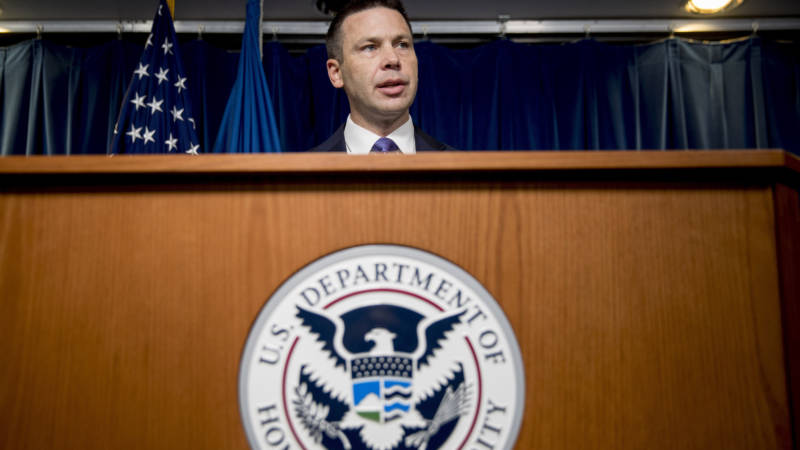McAleenan said under the new rule, "All children in the government's care will be universally treated with dignity, respect, and special concern in concert with American values — and faithful to the intent of the original settlement."
He said detained families will be held at facilities such as one in Pennsylvania that he described as a "campus-like setting" with "cushioned couches" and recreation facilities, where families are given three hot meals a day.
But those facilities are already near capacity, and critics fear families could be held in detention camps similar to those near the border — in which children have been forced to sleep on pads on concrete floors with scant medical attention.
The latest Trump administration attempt to limit illegal migration follows a week after it announced steps to limit legal migration, including a declaration that by seeking government benefits, migrants would jeopardize their chances of becoming permanent residents.
Copyright 2019 NPR. To see more, visit
NPR.org.
9(MDAxOTAwOTE4MDEyMTkxMDAzNjczZDljZA004))

9(MDAxOTAwOTE4MDEyMTkxMDAzNjczZDljZA004))
